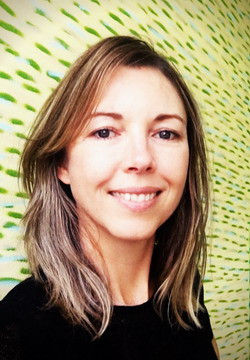Prising children away from the couch and their electronic devices is an all too common challenge for many parents. But a new study aims to find out if certain changes to our neighbourhoods could encourage children to be more physically active – and help reduce New Zealand’s childhood obesity epidemic.
Associate Professor Melody Smith from the University of Auckland has received one of five prestigious Sir Charles Hercus Fellowships from the Health Research Council of New Zealand (HRC) in its latest funding round to explore how environmental changes can impact on children’s physical activity and body size.
In this study Dr Smith will compare changes in children’s physical activity, active travel, and body size across different conditions in Māngere, Auckland. These conditions include where ‘intensive’ and ‘light’ infrastructural interventions have been made across neighbourhoods to make physical activity such as walking and cycling easier and safer.
Built environments in our neighbourhoods, which include not only buildings but the human-made spaces between buildings (e.g., parks) and infrastructure that supports human activity (e.g., transport networks), are more likely to have a greater influence on children’s levels of physical activity in the long term than individual factors alone, says Dr Smith.
“After smoking, insufficient physical activity is the greatest cause of chronic disease in New Zealand. Unfortunately, individual, education-based strategies to generate sustained improvements in physical activity have proven unsuccessful at the population level,” says Dr Smith.
Despite significant investment and public health initiatives, childhood obesity has increased in the past decade from 8 per cent in 2008 to 11 per cent in 2015. A third of New Zealand children are classified as ‘insufficiently physically active for health’.
“Our aim with this research is to provide evidence-based recommendations for built environment design features that support the best physical activity outcomes in children,” says Dr Smith.
HRC Chief Executive Professor Kath McPherson says Dr Smith is an internationally recognised leader in children’s physical activity research whose prior research at Auckland University of Technology has been translated to policy and practice for promoting physical activity and recreation, all of which bodes well for her fellowship.
“Melody’s fellowship research specifically addresses the goals of the Government’s Childhood Obesity Plan, which places great emphasis on initiatives aimed at increasing physical activity. We know that physical activity is essential for healthy physical, psychological, and emotional development in children, so funding research in this area is incredibly important,” says Professor McPherson.
This year the HRC has awarded five of its top Sir Charles Hercus fellowships worth a combined total of $2,440,000. See below for the list of all the recipients in the HRC’s general career development awards category, or go to our research repository and filter for ‘Career development awards’ and ‘2017’.
2017 HRC general career development awards
Sir Charles Hercus Health Research Fellowship
Dr Ghader Bashiri, the University of Auckland
Novel metabolic processes to target persistent tuberculosis
48 months, $500,000
Assistant Professor Brya Matthews, the University of Auckland
Novel osteoprogenitor cell populations involved in bone healing
48 months, $500,000
Dr Tracy Melzer, University of Otago, Christchurch
Dementia and Parkinson's disease: Tau pathology and cerebrovascular health
48 months, $500,000
Associate Professor Melody Smith, the University of Auckland
Impact of built environment interventions on children's physical activity
48 months, $440,000
Dr Christopher Walker, the University of Auckland
Naturally biased? Exploring neuropeptide signal pathway bias in pain
48 months, $500,000
Clinical Practitioner Research Fellowship
Dr Shay McGuinness, Auckland District Health Board
Improving outcomes after cardiothoracic surgery
60 months, $850,000
Dr Paul Young, Capital & Coast District Health Board
Prevention and treatment of fever in the intensive care unit
60 months, $723,720
Clinical Research Training Fellowship
Mr Karol Czuba, AUT University
Improving outcomes for support workers in aged care
36 months, $250,000
Ms Terry Dobbs, AUT University
Korero mai: taitamariki Māori development of healthy relationships
36 months, $250,000
Dr Melissa Edwards, the University of Auckland
The effects of comorbidity on breast cancer care and outcomes
24 months, $166,667
Ms Eileen Gilder, Auckland District Health Board
To suction or not to suction - that is the question
48 months, $250,000
Ms Joanna Hikaka, the University of Auckland
Medicine optimisation in older adults in primary care-multidisciplinary approach
48 months, $240,000
Dr Anthony Lin, the University of Auckland
The rectosigmoid brake and its utility as a neuromodulation target
36 months, $250,000
Mrs Diane Mackle, Medical Research Institute of New Zealand
Knowledge translation in the management of oxygen therapy in intensive care
48 months, $250,000
Dr Andrea Teng, University of Otago, Wellington
Impact of sugar-sweetened beverage taxation in the Pacific
36 months, $250,000
